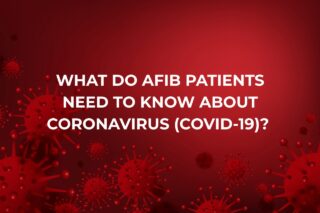
Atrial fibrillation, or AFib, is the most common heart arrhythmia. Simply put, it is an irregular heartbeat. In a healthy heart, the sinoatrial node controls the heart’s synchronicity and rhythm by controlling the electrical impulses that regulate it. With AFib, the sinoatrial node does not function as it should and cannot regulate those electrical impulses. Instead, it fires randomly, resulting in chaotic impulses which causes the heart to beat irregularly and rapidly. This results in the blood moving through the body and heart in a much less efficient and less effective manner.
Asymptomatic AFib is a silent killer
There are two types of AFib: symptomatic and asymptomatic. Symptomatic atrial fibrillation, as the name suggests, has a distinctive set of symptoms that can alert the patient and doctor of a potential problem. On the other hand, asymptomatic atrial fibrillation does not exhibit any symptoms, so the condition can go undetected for years – sometimes until it is too late. For this reason, it is often referred to as a silent killer.
Risk factors for asymptomatic AFib
Knowing the risk factors for atrial fibrillation can help you prevent the condition or catch it in its early stages. Although some of the risk factors, like age, cannot be controlled, some can be managed with some lifestyle changes or medical treatment. If you find that you have one or more of the risk factors, you need to talk to your doctor to create a plan. He or she may recommend that you lose weight, change your eating habits, start exercising, stop smoking, or decrease your alcohol intake.
Risk factors for atrial fibrillation include:
- Obesity
- Age – especially in those over 60 (National Stroke Association)
- Kidney disease
- Sleep apnea
- Diabetes
- Congestive heart failure
- Valvular heart disease
- High blood pressure
- Lung disease
- Coronary artery disease
- Genetics
Regular checkups can lead to early diagnosis
If you don’t have any symptoms of AFib, it is impossible to know you have it unless you are diagnosed by a doctor. Your only clue could be the fact that you have any of the risk factors. However, symptomatic atrial fibrillation often precedes asymptomatic AFib, so many patients will experience symptoms for a time before asymptomatic AFib appears.
Symptoms of atrial fibrillation include:
- Shortness of breath
- Strange heartbeats, fluttering, etc.
- Palpitations
- Fatigue
Even if you have no risk factors or symptoms, an annual medical check up is always a good idea. If you do have any of the risk factors, seeing your doctor is imperative.
If you or a loved one are living with a heart rhythm disorder such as atrial fibrillation, contact Heart Rhythm Consultants, P.A. Our team of EP doctors has been serving patients in Sarasota and surrounding cities including Venice, Tampa, and Sun City Center for over a decade.



